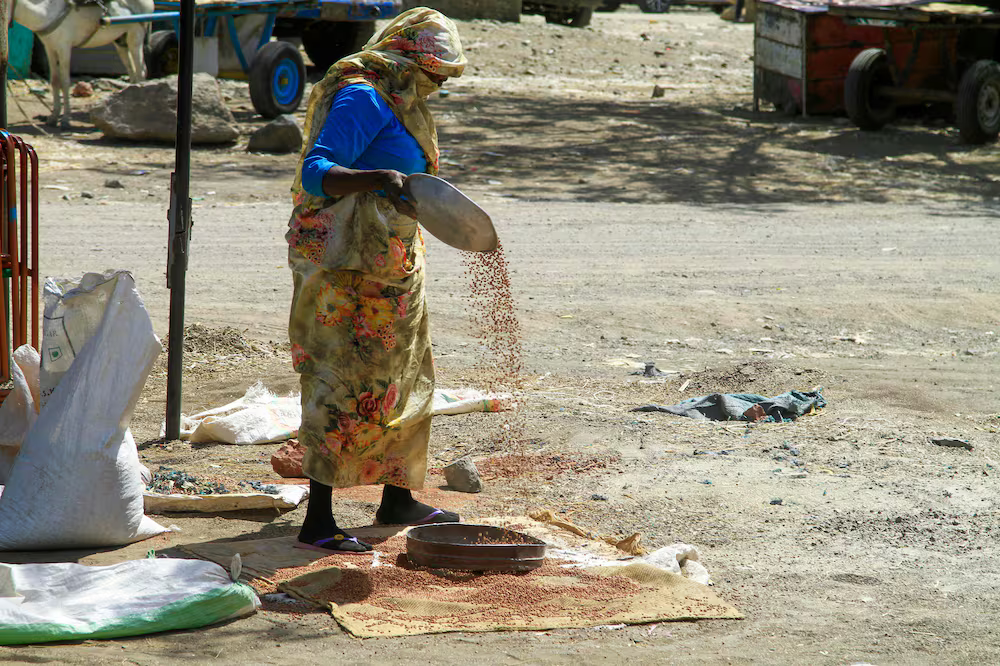The UN warned on Wednesday that the continuing violence in Sudan is creating a severe hunger crisis.
“The harrowing levels of violence in this conflict have taken a horrendous toll on civilians,” Edem Wosornu, director of operations and advocacy at the UN Office for the Co-ordination of Humanitarian Affairs, told the 15-member Security Council in New York.
“As the conflict rages on, Sudan is on course to become the world’s worst hunger crisis. Already, 18 million people – more than one third of the country’s population – are facing acute food insecurity.”
Over the past 11 months, Sudan has been grappling with the humanitarian consequences of the fighting, which erupted on April 15, 2023 between the Sudanese military, headed by Gen Abdel Fattah Al Burhan, and the paramilitary Rapid Support Forces, led by Gen Mohamed Dagalo.
“In Khartoum, Darfur and Kordofan – which are home to 90 per cent of people facing emergency levels of acute food insecurity – there has been no respite from the fierce fighting for 340 days,” Ms Wosornu said.
According to the UN, nearly 28 million people across the region face acute food insecurity, with 18 million in Sudan, seven million in South Sudan and nearly three million in Chad.
The UN also notes that about 730,000 children in Sudan, including more than 240,000 in Darfur, are believed to be suffering from severe acute malnutrition.
Carl Skau, deputy executive director World Food Programme (WFP), told council members that within Sudan, the UN food agency is working round the clock to address the extensive humanitarian needs, but relief operations are “severely hampered” by a lack of access and resources.
Sudan’s army chief says war crimes are being committed in country
The UN official also warned that bureaucratic obstacles are further shrinking the space for humanitarians to operate, and revoked permissions have impeded the WFP’s plan to reach about one million people each month across Darfur.
Mr Skau called for the reopening of additional border crossings to enable aid delivery to the greater Darfur region, which is experiencing some of the “most severe levels of hunger and malnutrition”.
“Within Sudan, we also need access across conflict lines, as a more cost-effective and efficient way to scale up our operations,” he said.
The Security Council earlier this month called for an immediate ceasefire during the Islamic holy month of Ramadan and urged better access to humanitarian aid.
“Since then,” said Ms Wosornu. “I regret to report that there has not been major progress on the ground.”
Linda Thomas-Greenfield, the US ambassador to the UN, urged the warring parties to not only immediately ensure unhindered humanitarian access, but also begin direct negotiations and cease hostilities.
“We reiterate our determination that members of the Sudanese Armed Forces and Rapid Support Forces have committed war crimes in Sudan,” she said.
Ms Thomas-Greenfield demanded the parties do more to protect civilians, respect human rights and comply with their obligations under international humanitarian law.
She further emphasised the need for regional powers to immediately stop supplying arms to the parties in Sudan, highlighting the binding UN arms embargo on Darfur.
Latest Sudan crisis – in pictures

